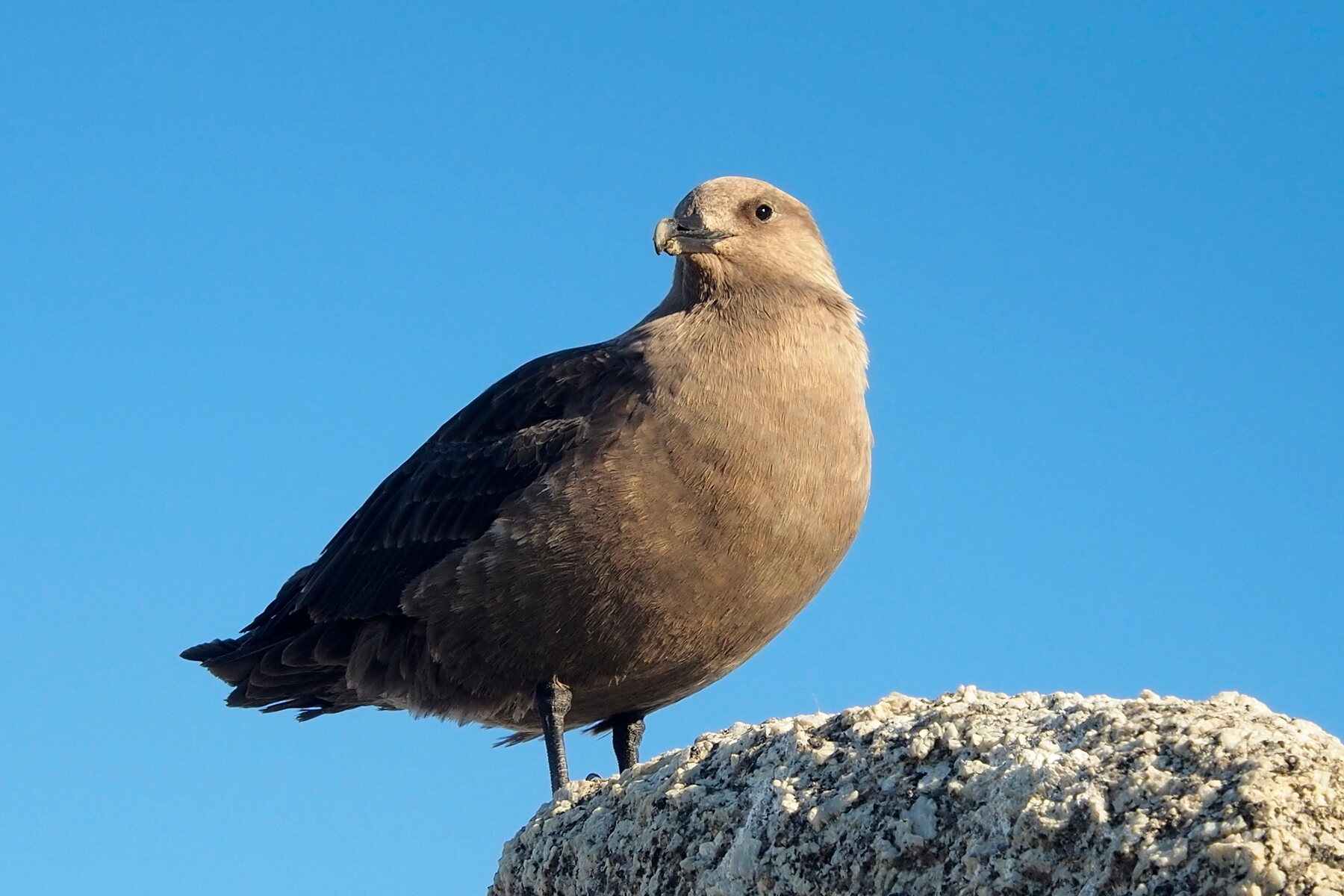
Ever wondered about the fascinating world of the skua? These seabirds, often misunderstood, have some pretty cool facts that might surprise you. Known for their aggressive behavior, skuas are the pirates of the bird world, often stealing food from other birds. They inhabit both the Arctic and Antarctic regions, showcasing their incredible adaptability. Skuas are also known for their long migrations, traveling thousands of miles between breeding and wintering grounds. Despite their fierce reputation, they play a crucial role in their ecosystems. Ready to learn more about these intriguing birds? Let's dive into 34 amazing facts about skuas!
What is a Skua?
Sitting at the top of the food chain in their icy habitats, skuas are fascinating seabirds. Known for their aggressive behavior and impressive flying skills, these birds have some unique traits. Let's dive into some intriguing facts about skuas.
- Skuas belong to the family Stercorariidae, which includes seven species.
- These birds are often referred to as "pirate birds" because they steal food from other seabirds.
- Skuas have a wingspan ranging from 1.2 to 1.4 meters, making them powerful fliers.
- They are found in both the Arctic and Antarctic regions, showcasing their adaptability to extreme climates.
- Skuas are known for their aggressive nature, often attacking much larger birds to steal their prey.
- These birds have a varied diet, including fish, squid, and even other birds' eggs and chicks.
- Skuas are excellent navigators, capable of long migrations across vast ocean distances.
- They have a robust build with strong, hooked beaks designed for tearing flesh.
- Skuas are monogamous, often forming long-term pair bonds with their mates.
- During the breeding season, they become highly territorial, fiercely defending their nests.
Skua Behavior and Adaptations
Skuas have developed some remarkable behaviors and adaptations to survive in their harsh environments. Here are some interesting facts about their behavior and adaptations.
- Skuas are kleptoparasitic, meaning they frequently steal food from other birds.
- They have been observed harassing penguins to regurgitate their food, which the skuas then eat.
- These birds are known for their aerial acrobatics, often performing impressive maneuvers to catch prey or evade predators.
- Skuas have a unique call that sounds like a harsh, grating "skua-skua," which they use to communicate with each other.
- Their plumage is typically brown or gray, providing excellent camouflage against rocky or icy backgrounds.
- Skuas have strong legs and webbed feet, allowing them to swim and dive efficiently.
- They are highly intelligent birds, capable of problem-solving and learning from experience.
- Skuas have been known to follow ships, taking advantage of the fish and other food scraps thrown overboard.
- These birds are highly adaptable, capable of thriving in a variety of environments, from coastal regions to open ocean.
- Skuas have a keen sense of sight, allowing them to spot prey from great distances.
Skua Reproduction and Lifespan
The reproductive habits and lifespan of skuas are equally fascinating. Let's explore some facts about their breeding and longevity.
- Skuas typically lay two eggs per breeding season, which both parents help incubate.
- The incubation period for skua eggs is around 25 to 30 days.
- Skua chicks are precocial, meaning they are relatively mature and mobile shortly after hatching.
- Both parents are involved in feeding and protecting the chicks until they fledge.
- Skuas reach sexual maturity at around four to five years of age.
- These birds have a relatively long lifespan, with some individuals living up to 20 years in the wild.
- Skuas often return to the same breeding grounds year after year, demonstrating strong site fidelity.
- They build their nests on the ground, usually in rocky or grassy areas, using materials like moss, grass, and feathers.
- Skuas are known to engage in elaborate courtship displays, including aerial chases and vocalizations.
- The survival rate of skua chicks is relatively high, thanks to the parents' aggressive defense tactics.
Skua Conservation and Human Interaction
While skuas are not currently endangered, they face various threats from human activities and environmental changes. Here are some facts about their conservation status and interactions with humans.
- Skuas are protected under various international agreements, including the Antarctic Treaty System.
- Climate change poses a significant threat to skuas, as it affects their food sources and breeding habitats.
- Human activities, such as overfishing and pollution, also impact skua populations by reducing their prey availability.
- Skuas have been known to scavenge from human settlements, sometimes causing conflicts with people.
The Final Word on Skuas
Skuas are truly fascinating birds. From their aggressive hunting tactics to their impressive migratory journeys, these seabirds are full of surprises. They’re known for their kleptoparasitic behavior, often stealing food from other birds. Despite their fierce reputation, skuas play a crucial role in their ecosystems, helping to keep populations of other seabirds in check.
Their adaptability is remarkable, thriving in some of the harshest environments on Earth, from the Arctic to the Antarctic. Skuas are also known for their intelligence and problem-solving skills, making them one of the more intriguing species to study.
Whether you’re a bird enthusiast or just curious about nature, skuas offer a glimpse into the complexity and beauty of the natural world. Keep an eye out for these incredible birds next time you’re near the coast; you might just witness their impressive skills in action.
Was this page helpful?
Our commitment to delivering trustworthy and engaging content is at the heart of what we do. Each fact on our site is contributed by real users like you, bringing a wealth of diverse insights and information. To ensure the highest standards of accuracy and reliability, our dedicated editors meticulously review each submission. This process guarantees that the facts we share are not only fascinating but also credible. Trust in our commitment to quality and authenticity as you explore and learn with us.
